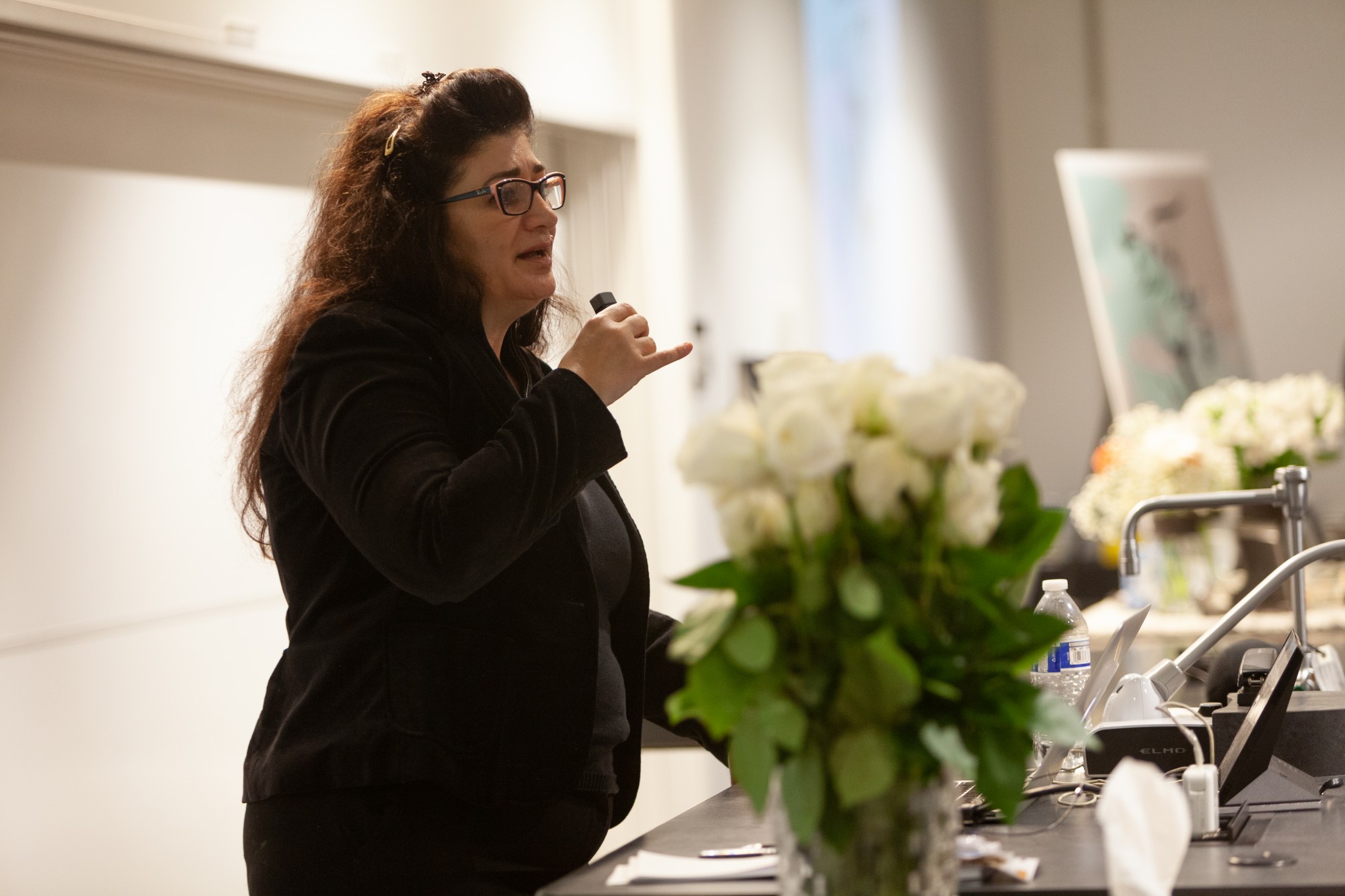The University of Minnesota Iranian community gathered Wednesday at John T. Tate Hall to mourn the 176 passengers who died after a plane was mistakenly shot down by Iranian missiles on Jan. 8.
Dozens of Iranian community members gathered expressing their condolences and mourning with one another. An Iranian community member sang a Persian song, and multiple videos were shown in honor of the lost passengers.
“Certainly, loss is personal, loss is private, it’s shared, it’s communal, and I wish for each of us here that this event supports you in all the ways that you are impacted by this tragedy,” said Barbara Kappler, director and assistant dean for International Student and Scholars Services, at the memorial.
University Ph.D student Arash Mahnan planned the memorial in collaboration with the Global Programs & Strategy Alliance, an umbrella unit over ISSS.
“I’d like to take this opportunity to honor all the victims of this tragedy, and our deepest condolences go out to the families and friends of all these people who have lost their lives,” Mahnan said at the memorial.
Recent events reverberate among those in Minnesota from nearly 7,000 miles away. With high political tensions and dozens of lost lives, many in the Iranian community are filled with emotion.
To express solidarity with Iranian students, ISSS reached out to members of the University’s Iranian community via email last week to offer condolences and offer support to impacted students.

Increased tensions, increased anxiety
The email comes amid increased tensions with Iran, after top military commander Qassem Soleimani was assassinated on Jan. 2 by the United States.
Regardless of the tensions between the two countries, the University will remain committed to providing support for this community, said Marissa Hill-Dongre, the director of the Immigration Response Team.
“I’ve been hearing from some members of the community that they’re feeling sad … lonely and far away from home,” Hill-Dongre said.
University student Maryam Zahedi is fearful of the prospects of another war or a revolution in the wake of recent hostility between Iran and the U.S.
It will only lead to more chaos and suffering, she said. “We don’t want another war. We’re just tired. We are hopeless and tired.”
The decision to kill Soleimani puts Iranians inside and outside of the country at risk, Zahedi said. Iranian citizens – “just normal people, ordinary people” – will pay the price of the hostility, she said.
Little government support echoes past
At these times, Zahedi wishes the U.S. government would show support for Iranians in the country.
“When I saw the prime minister of Canada and how much he supported the Iranian people in the last couple of days, I felt like I wish we had that support from the U.S. government, because we want to make our primary home here. It’s hard to see no welcome sign from them.”
Zahedi emigrated to the U.S. from Iran by herself five years ago. Her parents, who still live in Iran, cannot visit her because of the travel ban.
Though Zahedi’s situation is different, many Iranian students come to the U.S. on single-entry visas where a visit home is risky, said William Beeman, a University anthropology professor who specializes in the Middle East. Single-entry visa holders would need to apply for another visa, a process that is subject to long delays.
“Even during times that were better, Iranians were not given multiple-entry visas,” Beeman said. “Many of them were trapped here during their entire student period. They couldn’t go home because they couldn’t be certain that they’d be allowed back.”
The impact of today’s events on Iranians in the U.S. rhyme with those of the past. During the Iranian revolution in the 70s, Iranians were detained at the border, and Iranian students were threatened with the cancellation of their visas, Beeman said.
For Zahedi, being an immigrant from Iran is especially difficult at these times when many Iranians are viewed with suspicion.
“Finding a new home and a new identity … and finding a friend is really hard,” Zahedi said. “Just imagine if you’re from a country that the government hates – it makes [being an immigrant] harder. I wish we had a more supportive government in the United States.”




















